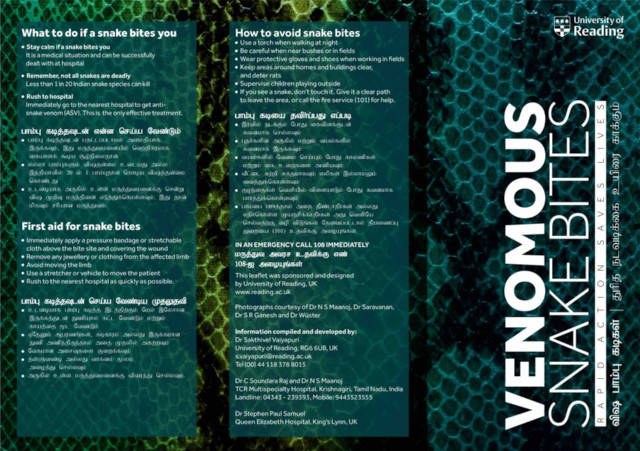Venomous snakebites kill up to 10,000 people a year in the Indian state of Tamil Nadu. However, with rapid medical attention, most snakebites can be treated. A lack of public awareness led Dr Sakthivel Vaiyapuri to devise a targeted education programme.
Agricultural workers are most at risk from snakebites, so the campaign targeted Tamil Nadu’s rural population. Dr Vaiyapuri collaborated with clinical colleagues and NGOs in the region to create leaflets, posters, a policy briefing and several short video documentaries. Each set out how to avoid snakebites: use a torch at night, wear shoes when working in the fields. And what to do if bitten: avoid traditional treatments, call for help, get to hospital quickly.
The resources have been well received in schools, universities, hospitals and public spaces. And the messages reinforced through widespread media coverage, Facebook advertising, and events for healthcare professionals in the region and beyond. Dr Vaiyapuri is now also targeting local policy makers to ensure all snakebite victims receive the best medical care and students study the essentials of snakebites in school.
The year-long campaign reached over 3 million people in Tamil Nadu, and 95% of those surveyed could recall the messages 12 months later. Myths were busted, and nearly half of snakebite victims attending a hospital were aware of, and had acted upon, the campaign.
In partnership with, Queen Elizabeth Hospital, Kings Lynn, UK, TCR Multispeciality Hospital, India, Toxiven Biotech Limited, India, Urvanam team, India.
Funded by Global Challenges Research Fund, University of Reading.
Shortlisted for the University Research Engagement and Impact Awards 2020
First published: June 2020

